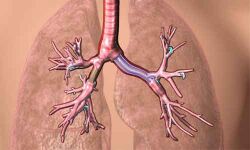- Home
- Medical news & Guidelines
- Anesthesiology
- Cardiology and CTVS
- Critical Care
- Dentistry
- Dermatology
- Diabetes and Endocrinology
- ENT
- Gastroenterology
- Medicine
- Nephrology
- Neurology
- Obstretics-Gynaecology
- Oncology
- Ophthalmology
- Orthopaedics
- Pediatrics-Neonatology
- Psychiatry
- Pulmonology
- Radiology
- Surgery
- Urology
- Laboratory Medicine
- Diet
- Nursing
- Paramedical
- Physiotherapy
- Health news
- Fact Check
- Bone Health Fact Check
- Brain Health Fact Check
- Cancer Related Fact Check
- Child Care Fact Check
- Dental and oral health fact check
- Diabetes and metabolic health fact check
- Diet and Nutrition Fact Check
- Eye and ENT Care Fact Check
- Fitness fact check
- Gut health fact check
- Heart health fact check
- Kidney health fact check
- Medical education fact check
- Men's health fact check
- Respiratory fact check
- Skin and hair care fact check
- Vaccine and Immunization fact check
- Women's health fact check
- AYUSH
- State News
- Andaman and Nicobar Islands
- Andhra Pradesh
- Arunachal Pradesh
- Assam
- Bihar
- Chandigarh
- Chattisgarh
- Dadra and Nagar Haveli
- Daman and Diu
- Delhi
- Goa
- Gujarat
- Haryana
- Himachal Pradesh
- Jammu & Kashmir
- Jharkhand
- Karnataka
- Kerala
- Ladakh
- Lakshadweep
- Madhya Pradesh
- Maharashtra
- Manipur
- Meghalaya
- Mizoram
- Nagaland
- Odisha
- Puducherry
- Punjab
- Rajasthan
- Sikkim
- Tamil Nadu
- Telangana
- Tripura
- Uttar Pradesh
- Uttrakhand
- West Bengal
- Medical Education
- Industry
US FDA nod patient-specific airway stents developed by Cleveland Clinic doctor

The US Food and Drug Administration has given its nod to patient-specific airway stents recently. The airway stents have been developed by a doctor at Cleveland Clinic and they are designed using CT scans and proprietary 3D visualization software. The molds for the stents are then printed using a 3D printer and injected with medical-grade silicone. This process allows them to perfectly fit a patient's anatomy.
The stents are used to keep open the airways of patients with serious breathing disorders, such as those caused by tumors, inflammation, trauma or other masses. Until now, the patient-specific devices were being implanted under the FDA's compassionate use program, which allows patients who have failed all available forms of treatment to receive investigational ones not yet available to the public.
"Breathing is something many people take for granted, but for many of these patients, every breath can be a struggle," said Tom Gildea, MD, section head of bronchoscopy at the Cleveland Clinic, who invented the technology. "It's been gratifying to see patients receiving the customized stents feeling relief right away."
Standard airway stents come in a limited number of sizes and shapes and are generally designed for larger airways. However, no two patient anatomies are alike, making it difficult to get a perfect fit, especially for those with complex conditions. Even in parts of the airways that are easily accessible, ill-fitting standard stents can result in stent kinking and bending as well as airway complications such as the growth of new tissue, mucous impaction, and tissue death.
Earlier the only method for implanting these personalized stents in patients was under the FDA's compassionate use program, which allows for the use of unapproved drugs or medical devices. In 2020, about 30,000 airway stents will be implanted in the U.S. and the hope is to make available more customized devices to interventional pulmonologists and their patients with serious breathing disorders.
"We are excited to be able to bring this technology to more patients across the country and grateful for the patients and donors who have worked with us to help pioneer this technology," adds Gildea.
According to the Cleveland Clinic, the stents which are modelledU from patient-specific dimensions, printed using a 3D printer and injected with medical-grade silicone have shown greater acceptance by the body, increased comfort, and improved performance outcomes.
"They have the potential to be more tolerable than traditional silicone stents, which, in certain patients, may have to be frequently changed or cleaned due to problems from a poor fit," contends the Cleveland Clinic.
"In studies, the patient-specific stents lasted, on average, about a year versus 90 days for stock stents. Furthermore, the patient-specific stents exhibited shorter procedure times and improved patient-reported symptoms, leading to a reduced need for stent changes and modifications."
The personalized stents will be manufactured by a new Cleveland Clinic spin-off company called VisionAir Solutions. and the same will be provided to patients by the end of the first quarter of 2020.
Hina Zahid Joined Medical Dialogue in 2017 with a passion to work as a Reporter. She coordinates with various national and international journals and association and covers all the stories related to Medical guidelines, Medical Journals, rare medical surgeries as well as all the updates in the medical field. Email: editorial@medicaldialogues.in. Contact no. 011-43720751
Dr Kamal Kant Kohli-MBBS, DTCD- a chest specialist with more than 30 years of practice and a flair for writing clinical articles, Dr Kamal Kant Kohli joined Medical Dialogues as a Chief Editor of Medical News. Besides writing articles, as an editor, he proofreads and verifies all the medical content published on Medical Dialogues including those coming from journals, studies,medical conferences,guidelines etc. Email: drkohli@medicaldialogues.in. Contact no. 011-43720751


